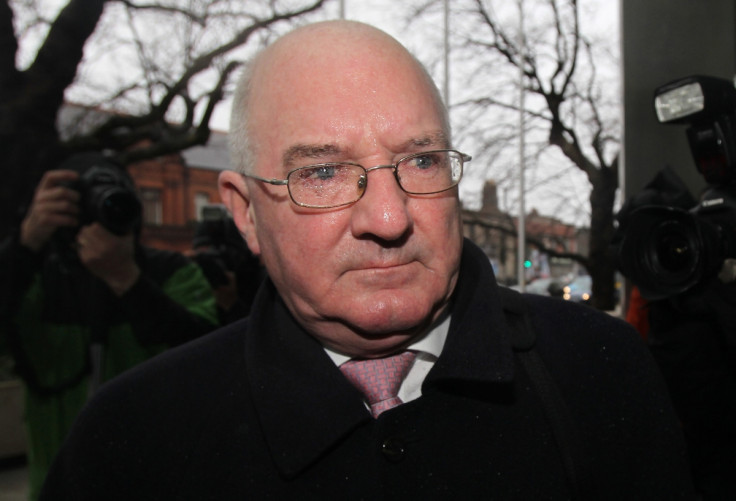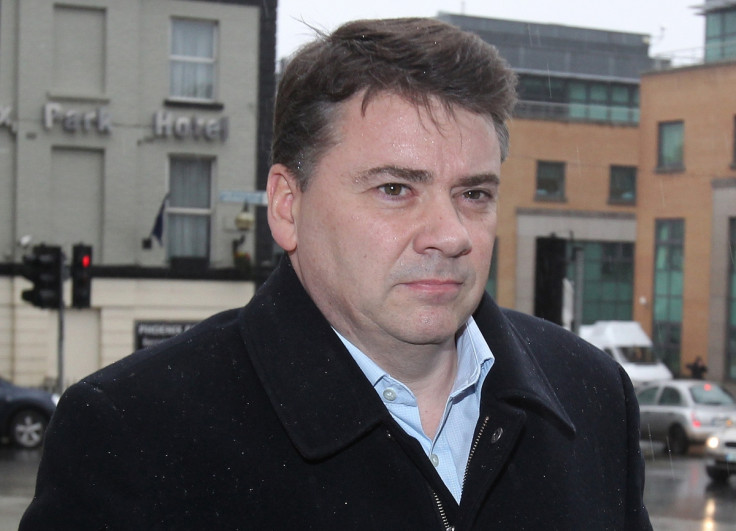Why Ireland's Banks Are Still Failing the People Despite Anglo Irish Trial

The Irish banking crisis cost its economy €60bn, roughly two-fifths of national GDP, and culminated in a bumper emergency cash injection.
But several years later, despite an exit from the bailout, the Anglo Irish banker trial has highlighted exactly how and why the sector is still failing the Irish.
Ireland may have returned to growth but the reputation of the country's banking sector, however, will take much longer to recover.
Anglo Irish Trial
In January, Ireland put three high-profile bankers on trial, all of whom worked for the Anglo Irish Bank, the collapse of which hastened Ireland's economic downturn.
Earlier in April, former CEO Seán Fitzpatrick was acquitted of 10 charges of providing unlawful assistance to 10 people to buy shares in the failing bank.
This week, though, 63-year old William McAteer and 51-year old Pat Whelan were found guilty of providing unlawful financial assistance to the same 10 individuals (known as the Maple 10).
The pair also provided financial assistance to the Quinn family, headed by Sean Quinn – once Ireland's richest man, whose fall from grace has been equally as spectacular.
Essentially, the pair has been convicted of providing Anglo loans for individuals to purchase shares in the bank, which would prop up its ailing share price.
While they have been spared custodial sentences, the symbolism is huge: Ireland's courts have successfully prosecuted banking executives for their role in the biggest financial crisis in the country's history.
There are few parts of the world in which bankers are considered 'popular'.
In February, the Royal Bank of Scotland chief executive Ross McEwan said: "We are the least trusted company in the least trusted sector of the economy. That must change."
But in Ireland, bankers' stock has fallen even lower still.
Over the past year, I've met with many figures from Ireland's trade and export community and the pattern is clear.
Bankers Are Not the Victims
Bankers plead innocence, suggesting they were victims of an unparalleled and unstoppable financial force.
Some will privately admit that things got out of hand: limits were stretched, lines crossed. But the official line is much less virtuous.
Those in the business community, though, seem happy to bash the bankers – exasperated at their indifference and failure to take ownership of their wrongdoings.
The roads in counties Cavan and Fermanagh, straddling Ireland's border, are emblazoned with slogans of support for the fallen Quinn, whose empire, taking in cement, insurance, wind farms and glass, was the biggest local employer. "Jail the bankers," reads one, in response to the Irish courts' decision to throw Quinn in prison for his (notable) role in the crisis.
Pro-Quinn sentiment isn't the norm; elsewhere on the island he's widely viewed as a gambler who made one bet too far.

But even so, it's hard to imagine anyone placing signs on the road in response to the convictions of McAteer and Whelan.
The Irish Central Bank, when contacted by the IBTimes UK, said that the summation of the judge in this week's trial implied that the sector is much more responsible six years on.
"The Central Bank notes the court's comments on the Irish Financial Services Regulatory Authority's actions at the time of the Anglo Irish Bank share purchase transaction in July 2008. The Central Bank has substantially strengthened Ireland's capacity in financial regulation and supervision over the past number of years and introduced sweeping changes in supervisory practices. It is confident that the shortcomings identified by the court would not recur today," said a spokesperson for the bank.
But the perception among many is that the, aside from the scandals, the banking sector (the commercial sector at least) is still failing to meet its most basic criteria: supporting local people and businesses.
Irish Economy
The crisis sparked a wave of redundancies among Irish banks, as they consolidated their balance sheets.
Ireland's small business owners feel they are the ones most affected by this, with regional staff having lost the authority and skills required to lend money.
For consumers, the situation is equally bleak. In March, it was reported that the amount of mortgage and consumer credit available fell to its lowest level since July 2005.
Simultaneously, the Irish property market grew 7.2% in the first quarter of this year, with the Society of Chartered Surveyors of Ireland reporting that property values are growing at their fastest rate since 2006.
Politicians are quick to leap on this as a sign of recovery, but it has the hallmarks of the early stage of a property bubble: high demand plus low stock equals high prices.
The fear is that the Irish consumer has been forgotten amid all the talk of recovery: unable to get bank credit, leaving the market open for institutional investors (many American) to carve up among them.
McAteer, Whelan and Fitzpatrick have become to Ireland what Bob Diamond and Fred Goodwin were to Britain. But as with the UK's banking sector, the latter escaped with only their reputations in shreds.
For the Irish banking sector, with a full enquiry into the Anglo scandal now expected, the road back is unlikely to be nearly so forgiving.
© Copyright IBTimes 2025. All rights reserved.






















